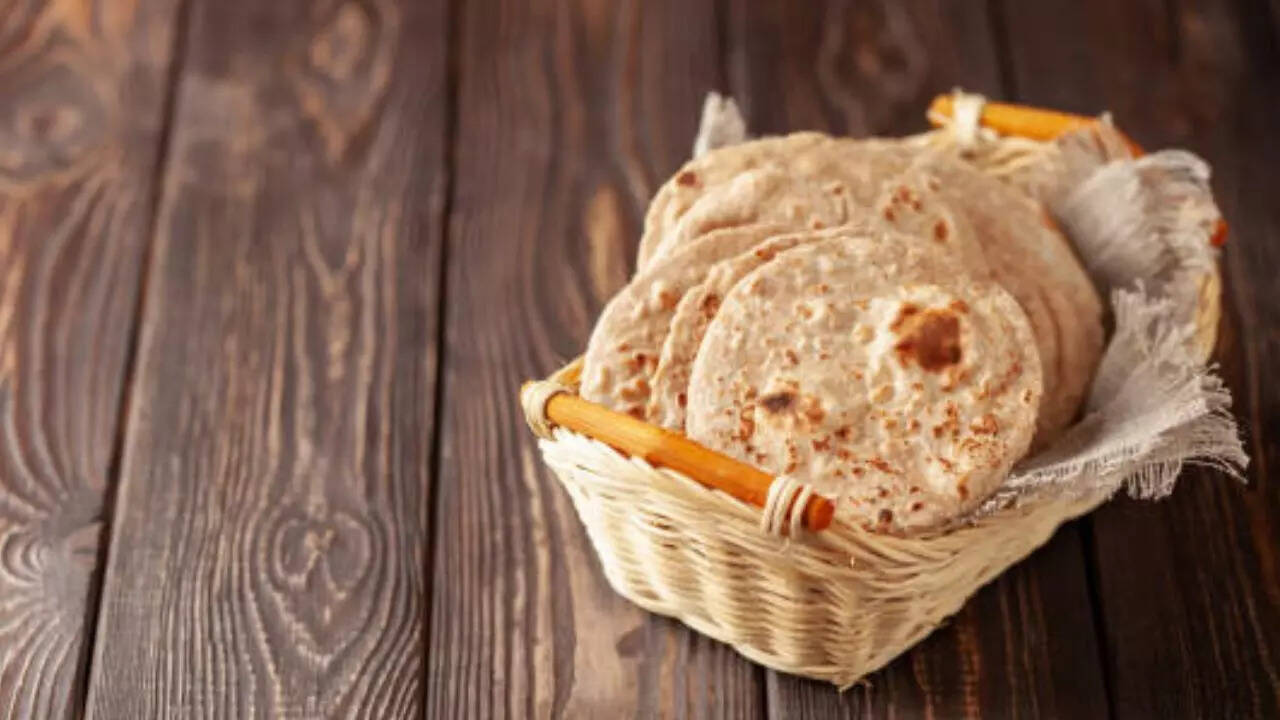Contents
-
news
-
Health
-
Diet
What happens to your body when you completely remove rotis from your diet?
The main thing in the Indian diet is roti or chapatti, which most people eat during both the meals. However, many people follow a low-carb diet to eliminate it from their diet. According to experts, it may have some effects – both positive and negative – including reduction in water weight and bloating. But in the long run, it can also cause ketosis, which can lead to muscle loss and ultimately slow metabolism – making weight loss more challenging and leading to the dreaded ‘weight plateau’. Read on to know more.

Sudden reduction of carbs will make you lose weight
In the Indian diet, rotis play a major role as most people eat them for lunch or dinner. In many households, rotis are also a staple of breakfast – keeping you satiated for longer periods of time. However, breads typically made from whole wheat – also known as chapattis – are often seen as the primary source of carbohydrates. And so, what happens when such a staple food is removed from your daily intake?
Possible benefits of not eating chapati
According to experts, removing chapati or other carbohydrate-rich foods from your diet may provide some health benefits initially. Within the first month, you may notice that your puffiness has gone down, making your face look slimmer, making you feel lighter and more energetic.
Severe carb limitations can cause your body to break down fat into ketones for energy, a condition called ketosis. Ketosis causes various side effects like bad breath, headache, fatigue and weakness.
Also, if you mainly eat bread in all your meals and you have suddenly stopped eating it. Lack of carbs will make you lose weightHowever, experts say that initially it consists mostly of water weight. This mostly happens because Cutting carbs depletes glycogen stores In your muscles, which helps your body retain water. You may also lose some salt as you reduce carbs, and when you start eating rotis again, the water weight will quickly come back.
Long term effects of not eating rotis
If you don’t eat bread or other carbs for a long time, here are the reasons insufficient external carbohydrate sourcesYour body will begin to break down proteins to obtain energy, resulting in muscle loss instead of fat lossultimately this slows down metabolismWhich makes weight loss more challenging and leads to the dreaded ‘weight plateau’.
Moreover, since eating roti will lead to fiber deficiency, you may suffer from various digestive problems like constipation, gas trapped in the digestive tract and frequent stomach aches. If you stay well hydrated and get enough electrolytes, your symptoms will not be as severe or last as long.
Skipping bread can also lower your blood sugar levels, especially in people who have diabetes. But in true ketosis, doctors say hypoglycemia is a major risk factor. This happens when your blood sugar gets too low, and the only treatment is to take 15 grams of carbs to bring it up. If it is still too low after 15 minutes, you will need another 15 grams. If you have diabetes, check your sugar often and know that you may need to adjust your medications during this diet.
How can you maintain a balanced diet?
Experts say that it is important to maintain a balanced diet even when you remove carbohydrates from your diet, and hence proper and thoughtful planning is required. Be sure to include all the macronutrients like proteins, fats and carbohydrates along with essential micronutrients in your meals throughout the day. Fad diets often focus on short-term results but are not sustainable in the long term.
- Eat a balanced diet that includes carbohydrates, proteins and alternative sources of healthy fats.
- Do exercise for 30-45 minutes every day
- Ensure adequate sleep and hydration
Get the latest news live on Times Now with breaking news and top headlines from around the world on diet, health and more.
Lack of carbs will make you lose weight
Cutting carbs depletes glycogen stores
insufficient external carbohydrate sources
muscle loss instead of fat loss
slows down metabolism


